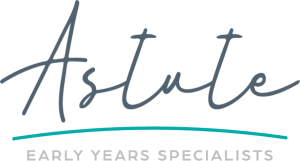It seems our previous post – Step away from the camera – has struck a chord. The feedback we have received, as well as our daily conversations with teams, speaks clearly that we are in documentation overload.
Educators are feeling stress in many ways, from:
• Wondering if they are doing it ‘right’
• That they are doing too much, or not enough
• That it’s not ‘good enough’
• They don’t know ‘what’ they are supposed to be documenting, when ‘learning’ is a subjective concept, particularly in the early years
• They don’t know ‘what’ they are supposed to be documenting when there are so many audiences for their work
• And the list goes on….
Now, I am old enough (cough/what!) to remember the days when documentation wasn’t what it is today. Those were the days of programming two weeks to 6months (or longer!) in advance, of themes and little in the way of learning stories, narratives, summative or formative assessments. Running records and anecdotes were our go-to. Plus, because we were operating so far in advance, we had no ‘documentation stress’.
I’m not saying that those days were better – just different, for a whole bunch of reasons. We now know, based upon empirical research, of the effects of qualified, informed, intentional teachers and teaching has upon the learning and development capacities of young children.
And it’s all good.
But, we do need to provide ourselves a framework. I’m not talking about the Early Years Learning Framework, but a framework that enables you to MEET (and then Exceed) the NQS, and that allows you to meet the regulations and NOT place you under documentation stress.
So where do we start with building a framework? We start at the beginning of the planning cycle. That of Observe. To be able to plan for children’s learning, we need to know children – really well.
And how do we do this? Traditionally, we have done this through observation, writing about the observations and reflecting then upon the writing of the observation, to plan for learning. The cycle can be complex and time consuming.
But, I’m concerned that we don’t give enough time and value to the first stage – that of observation. And that’s our downfall. Experience and evidence tells us that the more we observe children, the better we know them, and the better (and easier) it is to plan for their learning. Right? Yep, we know this.
So how do we get good, in-depth observations? Simple.
By watching. Just watching. Not engaging, interacting or evaluating. Just observing.
Having worked with many centres over the years, we have found that when your documentation cycle becomes complicated, and you become concerned, you just need to stop. And go back to basics. And begin again with observation.
So stop everything your doing. Yes, you have permission to stop. And, you won’t get in trouble.
For 6 weeks, or 2 weeks, or whatever you choose, stop all writing and go back to observing children.
* Observe with INTENT & FOCUS.
* Observe with a critical, focused lens.
* Rediscover what they can do.
* Rediscover how they learn.
* Rediscover how they communicate.
Observing children engaged in play provides you a level of insight you don’t have when YOU are engaged IN play with them. In deeply observing, you can focus on a particular child or a particular developmental area. For example, asking ourselves, as we watch them,
• How are they using language to communicate with others?
• What does co-operation and collaboration look like?
• How is their development progressing?
Or, we observe PLAY – what takes their interest and why? How does the play deepen? Are there elements in the environment that limit play? What areas of the learning environment are they drawn too?
But, sometimes, we feel the need to observe and write. There is nothing wrong with this, but the act of observation, and the act of writing are two separate cognitive functions. Allow yourself the time (and pleasure) of observing children without writing about them at the same time. Think deeply about your observations, comparing what you know with what you see.
By stopping the NEED to write all the time, we just might uncover new learnings about children that we have previously overlooked.
Try it. It works. P.S. We know this post may cause a little angst, so if you’d like to chat with us about it, please feel free to get in contact.
